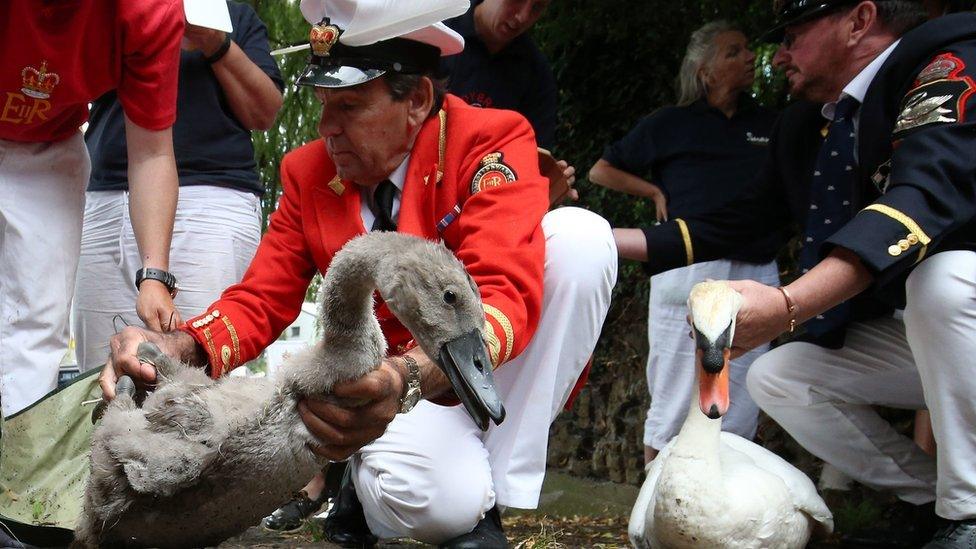Queen's Royal Swan Uppers take to the Thames
- Published
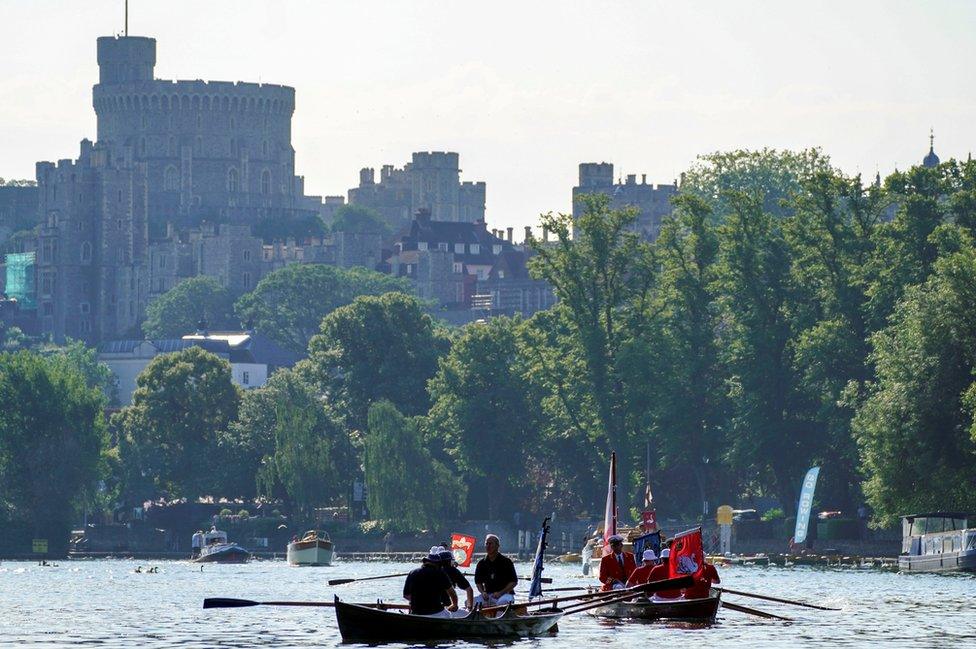
The Queen's Swan Marker, David Barber (right boat), is joined by Swan Uppers to inspect swans near Windsor
The annual census of the swan population is under way on the River Thames.
Swan Upping normally takes place during the third week of July every year.
It was cancelled last year due to the pandemic and has been scaled down to three days from the usual five this year.
Swan Uppers travel along the river in rowing boats to weigh and measure cygnets and check them for any signs of illness or injury.
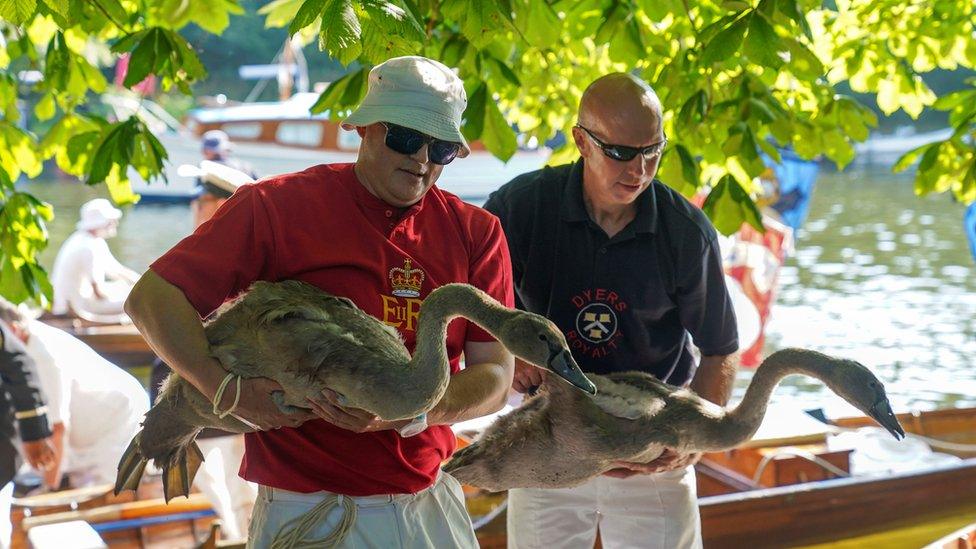
The cygnets are ringed with individual identification numbers by the Queen's Swan Warden
David Barber, the Queen's Swan Marker, said: "Members of the public have been extremely observant during the Covid-19 lockdown and have reported many injured swans.
"This has enabled them to be rescued and treated promptly which has avoided unnecessary suffering.
"This year, the breeding season has been successful in terms of cygnet numbers and there has been a decrease in the number of dog attacks on swan nests reported."
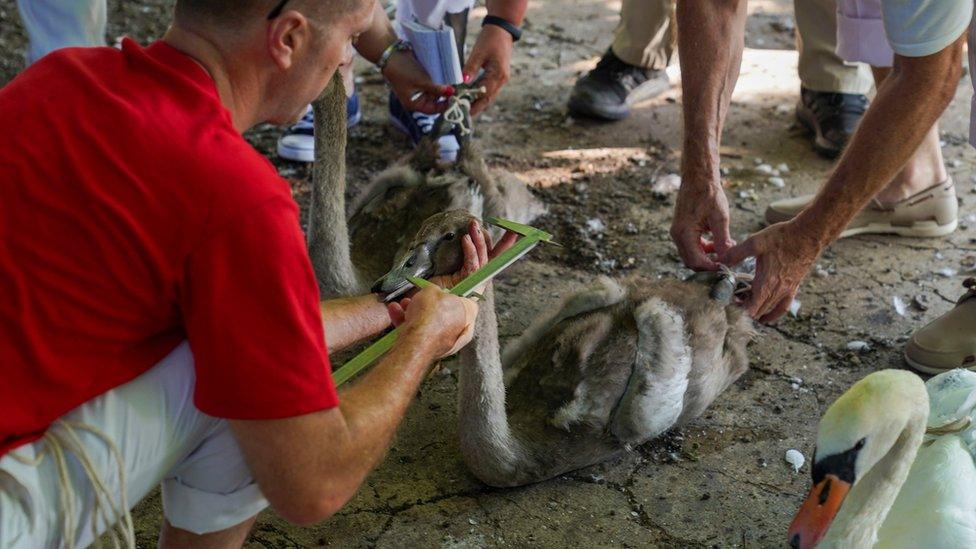
The cygnets are weighed and measured - young cygnets are also assessed for any signs of disease
He added a "vast increase in pollution" had been seen on the river, including engine and diesel oil, and other debris.
"These situations are entirely avoidable and have a devastating impact upon both the wildlife and the environment," Mr Barber said.
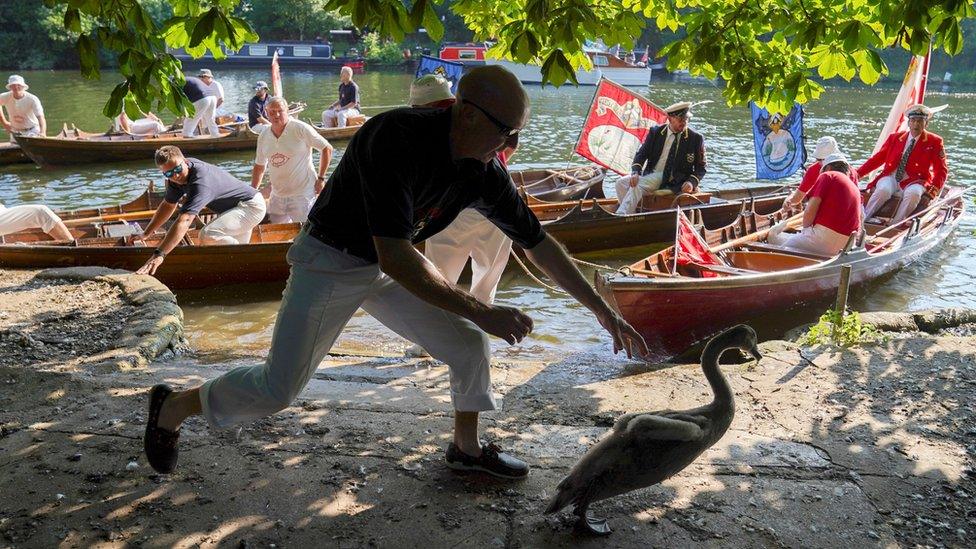
A cygnet tries to evade capture
Swan Upping began at Eton Bridge, Berkshire, and will finish at Moulsford on Thames, Oxfordshire, on Thursday evening.
The Queen's Swan Marker will detail the number of swans, broods and cygnets counted over the three days.
The census dates to the 12th Century when The Crown claimed ownership of all mute swans, which were then considered an important food for banquets and feasts.
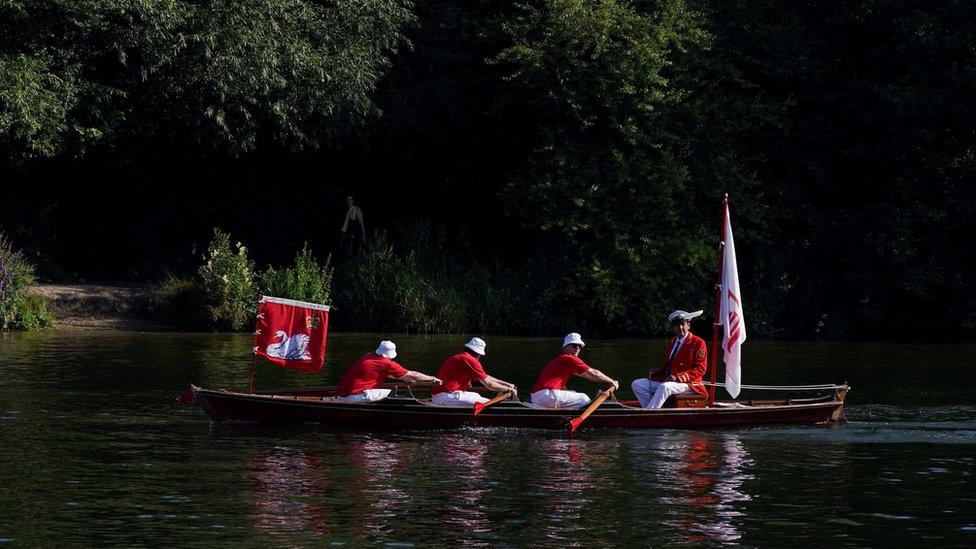
Swan Uppers use six traditional Thames rowing skiffs in their journey upstream

Follow BBC South on Facebook, external, Twitter, external, or Instagram, external. Send your story ideas to south.newsonline@bbc.co.uk, external.
Related topics
- Published16 July 2019
